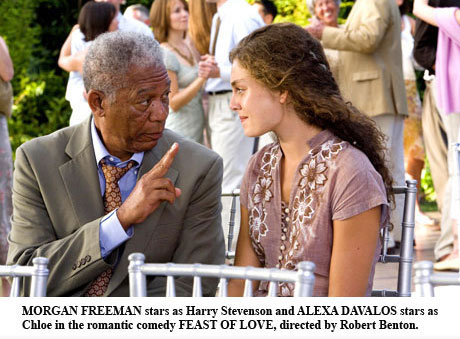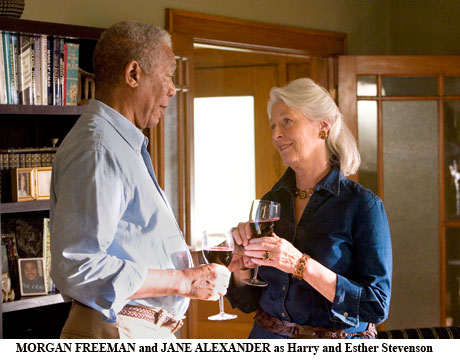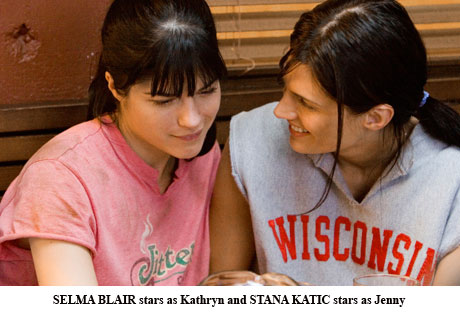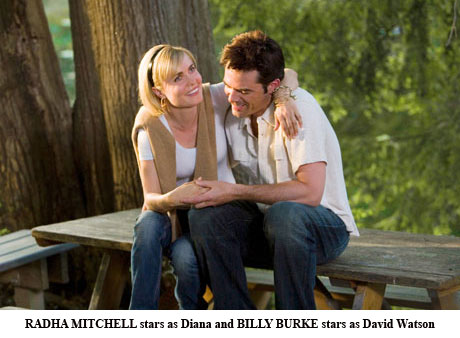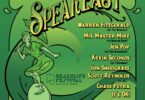Morgan Freeman strolled into the room singing "Danke Schoen", sat down and immediately began to flirt. Given the depth and complexity of the characters he tends to play, one might expect some of the same from the actor. Think again. At the age of seventy, with an Oscar, a Golden Globe and a Lifetime Achievement Award under his belt, this man has nothing to prove to anyone, and it shows. He doesn’t want to play by the rules, he just wants to play. Freeman folded his hands, tried to hide his mischievous smirk and pretended to field some serious questions.
In the upcoming film Feast of Love, Freeman plays a philosophy professor who applies his wise and wary observation to the intersecting lives of the lovelorn in a small Oregon town. His character, Harry, despite (or perhaps because of) the vicissitudes of life, is still deeply in love with his wife Ester (played by Jane Alexander). By turns buoyant, poetic and existential, the film shows just how wondrous, magical and devastating love can be.
Morgan offered up his own unique take on love. "I confuse love with lust. I don’t think there’s very much difference between the two. They both can be very deep and very fleeting. Love and lust. Yeah, they don’t even live next door, they live in the same closet!" When asked if there was anything from his personal life he brought to the character he quipped, "I’m an old guy. I’ve gone though a lot of relationship stuff."
Crafted with subtlety, grace and poignancy, Feast of Love takes "a lot of relationship stuff" and weaves a tapestry of emotion – sensual passion, spiritual connection, platonic affection, loss, longing, disappointment and grief. The enchanted storyline is full of surprises yet anchored in emotional realism, while the utterly modern characters manage to exude a timelessness of sentiment.
Freeman’s Harry is a deeply affecting character, the one that ties the various threads together. Giving a multilayered and convincing performance is nothing new for Freeman. Many people over the years have asked him how just he does it and have never gotten a satisfactory response. His usual reply is that it’s easy, anyone can do it. "The hard part about acting is getting work and the rest is easy," he claims. Few would disagree that it’s hard for an actor to get work, but it’s difficult to believe that it’s easy to be as good as Freeman is. If anyone can do it, why aren’t they?
In terms of the process for creating his characters, Freeman demurred, "The writer does ninety-five percent of the work, that’s five percent left." In this case, the ninety five percent was done by two writers with input from two producers and one director. Charles Baxter, one of America’s finest writers, created a compelling and much lauded piece of meta-fiction, a funny and sensuous story about human interconnectedness. Robert Benton, esteemed writer and director of Kramer vs. Kramer and Bonnie and Clyde, read the book when it was published in 2001 and immediately sought to option it. His efforts were met with resistance however and despite his love for the novel he eventually gave up. It haunted him for years. Tom Rosenberg and Gary Luccesi of Lake Shore Entertainment didn’t give up, and serendipity stepped in to bring them together.
Once Benton was secured, Tom Rosenberg called on Allison Burnett, a screenwriter he felt had just the right sensibilities for the project. Rosenberg sent him the book and Burnett loved it, immediately sensing that it would make a great film. "Sometimes when you read book there really isn’t much to it," he said, but with Feast it was the opposite problem, there was so much going on in the book that deciding what to omit became the primary challenge. "The biggest mistake you can make when adapting a book is to be too loyal to the book. You have to be ruthless," Burnett stated, citing some of the major changes that were made in the name of cinematic clarity – combining characters, killing off characters and the decision to depict everything in the present tense as opposed to through flashbacks in the manner of the novel.
Rosenberg, Luccesi and Burnett struggled with the fact that elements they loved in the book just weren’t going to work in the film. Still, with all his talk of ruthlessness, Burnett admitted that every major plot point used in the movie was taken directly from the book and that much of his contribution was in the form of dialogue. He tried to use whatever existed in the text but given the narrative style of the book there was a lot of banter and interplay he had to invent. The dialogue he created is original and quirky, yet grounded in the authenticity of the characters.
Getting to the core of the film’s message Burnett summed it us as such: "A lot of movies say love makes the world go around but they don’t tell you it’s the most painful thing in the world to do. This movie is trying to get at something that most movies are not about, that there’s nothing more painful and nothing more important than love."
Feast of Love starring Morgan Freeman, Jane Alexander, Radha Mitchell and Greg Kinnear, opens in theatres on Friday, September 28.


